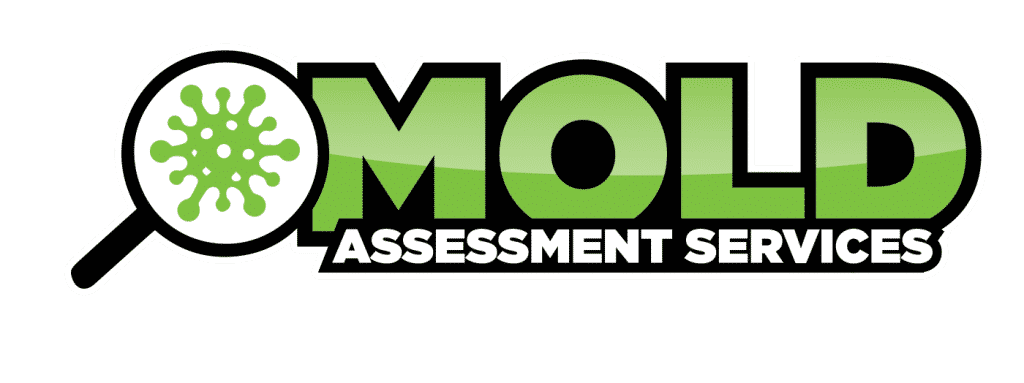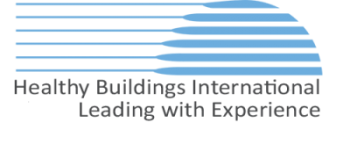Post-remediation verification (PRV) is critical to any mold remediation project. It’s performed after the work is complete and ensures the remediation was successful and no further mold is present. It also gives proof of compliance with your organization’s requirements, typically those imposed by an auditor or regulatory agency. Afterward, you will receive a Microbial Completion and Clearance Certificate (MCCC) from a professional. It provides proof for insurance claims, mortgage companies, and other organizations. The following illustrates the importance and how to get a microbial completion and clearance certificate.
This article explains why a PRV is essential and the benefits of having an MCCC. It includes considerations, who performs it, and what to include in your contract for correctly performing this service.

Mold testing is an integral part of environmental inspection, ensuring adherence to health safety standards and regulatory guidelines. Property assessment plays a crucial role in identifying areas needing remediation techniques. Air quality control is vital in post-remediation scenarios, while compliance verification is essential for meeting insurance policy requirements. Professional certification provides assurance of the quality and reliability of the remediation process.
What is a Post-Remediation Verification or PRV?
A post-remediation verification (PRV) is a visual inspection, surface sampling, and or air sampling conducted following the remediation of water-damaged structures to confirm the successful removal of mold.
Your insurance company or regulatory authority performs a PRV. However, you may choose to obtain one yourself. A post-remediation verification typically involves:
- A visual inspection of the property after cleaning/removal of visible mold growth (the inspector will look for residual signs of active or past mold growth)
- Surface sampling for Level II Mold Identification & Analysis (if necessary)
Post-remediation verifications confirm that the building returns to baseline indoor environmental conditions and is mold-free.
The following are some questions you should ask your Mold Specialist regarding testing:
- What types of samples are collected?
- Can I be present at the sample collection?
- Will my insurance company need to be involved in paying for this?
A proper post-remediation verification gives owners, insurance companies, and other parties the confidence that the remediation project was successful.

Understanding the importance of Post-Remediation Verification is critical for property owners dealing with mold issues. The benefits of Microbial Completion and Clearance Certificate cannot be overstated, as it provides essential proof of a successful remediation process. For those unsure about the steps to obtain MCCC, consulting with experts like Mold Assessment Services can make the process straightforward and efficient. These services often include visual and surface sampling techniques, essential for thorough inspection and assessment.
Receiving a Microbial Completion and Clearance Certificate (MCCC) After a PRV
Post-remediation verification is an integral part of the remediation process. It allows you to check that your application’s remediation actions were effective. A post-remediation also provides supporting evidence that meets reporting requirements and ensures confidence in your application’s security posture.
Do I Need a PRV and MCCC?
The purpose of a post-remediation verification is to document that all applicable tests were conducted on each attempt of a particular test group, following all relevant requirements and interpretations. A successful post remediations verification will demonstrate the following:
- The application and effectiveness of technical knowledge
- A logical approach to decisions based on scientific evidence
- A clear understanding of customer needs
The underlying goal of a proper post-remediation verification must be to provide a scientific basis for decisions regarding whether or not the project was successful. If you cannot determine that, then you have no way of knowing if your actions effectively removed all of the mold and other bioaerosols from a building.
It is also crucial because a post-remediation verification provides documentation that can be used by your insurance company when they decide whether or not they will pay for your cleanup expenses. Keep in mind that some insurance companies may require this documentation before they will even consider paying anything at all!
It takes more than a visual inspection to do this properly. Adequate documentation is an important step as well. Documentation requirements usually are written into the scope of work. The specifications ensure its met during and after the completion of the scope of work.
Scope of Work Specifications
The scope of work is a document that identifies the objectives and parameters of a project, including what tasks, who will perform them, and completion time. It also includes any specifications required to accomplish those tasks. Specifications are documents that describe how something is to be built or maintained. Construction projects use them to ensure everything comes together as expected and nothing gets overlooked. Documentation requirements often appear within these documents, separate or included within another section. It can make it difficult for owners to know what needs what is pending for remediation verification compliance.
Considerations When Planning a Post-Remediation Verification
It is vital to complete a post-remediation verification because it can help you identify any remaining issues following a specific project. The scope of work should be clearly defined, planned, and organized. It is also essential that the project is appropriately managed, documented, executed, and reviewed.
A PRV confirms the building returns to a normal baseline indoor environmental condition free from mold. A professional inspector will include a Microbial Completion and Clearance Certificate. The MCCC proves that the remediation project was successful for the owner, insurance company, and other interested parties.
The underlying goal is to provide a scientific basis for decisions regarding whether or not the project was successful. It takes more than a visual inspection to do this properly. Adequate documentation is an important step as well. In many cases, documentation requirements are written into the scope of work and specifications of the PRV, ensuring the scope of work is complete.

Interacting with insurance companies during mold remediation can be challenging. However, knowing the documentation requirements in remediation can streamline the process. This involves understanding the scope of work specifications and ensuring that all aspects of the project adhere to these standards. A scientific basis for remediation success is what sets apart a reliable remediation process from an inadequate one. For more information and assistance, you can reach Mold Assessment Services at their provided contact information.
Post-Remediation Verification (PRV) and Microbial Completion and Clearance Certificate (MCCC) by MAS
Post-remediation verification (PRV) is an essential step in mold remediation. It allows property owners to have complete confidence in the outcome of any remediation project. Hence, it is best to have qualified inspectors conduct a proper post-remediation verification.
A PRV and MCCC are essential components of successful mold remediation. It allows property owners to have complete confidence in the outcome of any remediation project. Hence, it is best to contact qualified inspectors like Mold Assessment Services. Reach MAS at 305-244-7379 or fill out the form to contact us.


